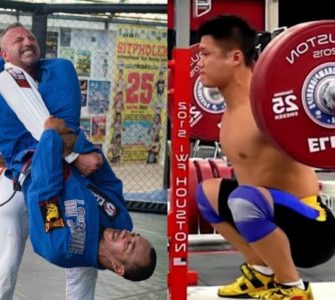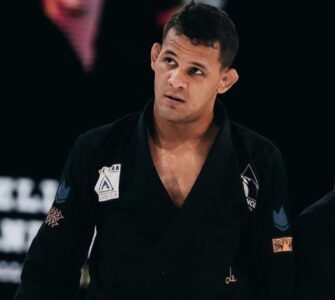Travis Stevens and Jimmy Pedro were put on the spot given some media claims that brutal techniques in Judo are on the rise. This moniker is mostly in reference to submission holds which are a specialty of both Stevens and Pedro.
According to Washington Post peace titled “Brutal techniques of ‘gentle’ judo on the rise at Olympics”:
“But after nearly a week of competition at the Rio Olympics, the meaning of the Japanese martial art seems almost paradoxical; many of the matches have ended brutally, with judo players strangling others into unconsciousness or threatening to break their opponents’ arms before forcing them to surrender. “
No doubt the’re referring in part to brutal armbreak of a Brazilian fan favorite Sarah Menezes:
or perhaps one of Stevens’ victories that can be seen by following the link below
Watch The Entire Olympic Journey Of Judo Silver Medalist Travis Stevens
But Jimmy Pedro, USA Judo Coach has a differing opinion:
“As violent as it looks, all of the submission holds in judo are done with control,” said U.S. head coach Jimmy Pedro. “You always have to give your opponent an opportunity to submit. You can’t just break someone’s arm.”
Judo Silver Medalist Stevens is slightly less amiable:
“When it comes to (elite) judo, I have an ‘anything goes’ policy,” he said. “If you’re not qualified or skilled enough to protect yourself, you shouldn’t be on the mat.” He said the best judoka have a high pain threshold and that the injuries seen at Rio are simply an indication of the lengths they’re willing to go to for their Olympic dream.
“I don’t think any judo player is going to come out of a major competition without a few bumps and bruises,” he said. “But you have to do whatever it takes to win — as long as it’s within the rules.”
The most decorated American Judoka, Kayla Harrison had a much softer opinion:
“In the moment, you’re just thinking about winning,” Harrison said. “You’re so focused and so in the zone that you don’t really consider the repercussions of it, but afterwards, of course, you never really want to hurt anyone.”



















